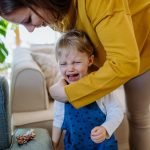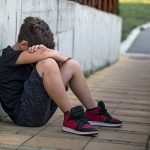Parenting with ADHD: 7 practical tips for success
Attention-deficit/Hyperactivity Disorder (ADHD) often goes undiagnosed in adults — including parents — but it has a significant impact on family life.
A parent with ADHD...
Childhood reading problems linked to worse memory function in midlife
A recent study published in the Journal of Epidemiology & Community Health on July 6 has uncovered a notable connection between childhood reading difficulties...
Kids with cats are much more likely to get schizophrenia, study finds
Recent research by The Park Center for Mental Health in Australia has added to the evidence that owning a cat could significantly increase the...
Childhood inflammation is a big cause of autism and schizophrenia
Neurodevelopmental disorders, such as autism and schizophrenia, pose challenges for individuals, affecting their communication, interactions, and emotional management.
Researchers at the University of Maryland School...
How to manage aggressive behaviour in children with autism
Reports of physical and sexual assaults by children with autism or intellectual disabilities have raised concerns about aggressive behavior in this population.
Parents often struggle...
Screen time linked to mental health issues in young children
A recent study published in JAMA Pediatrics has revealed that screen time is linked to mental health problems in children aged 3 to 6...
Many kids are taking melatonin for sleep, but is it safe?
A new study has found that a lot of children are using melatonin to help them sleep. Melatonin is a hormone that our bodies...
How to address childhood bullying
Most people have felt picked on, put down, or left out by peers at some point in their life.
Conflict between children, even friends, can...
How to help a child who is overweight
Children naturally gain weight as they grow and develop.
Some kids may gain extra pounds, but lose them as they develop and grow taller. For...
Can a father’s mood affect a child’s behavior and intelligence?
We all know that mothers play a crucial role in their children's development.
However, a new study suggests that fathers' feelings and moods during pregnancy...










